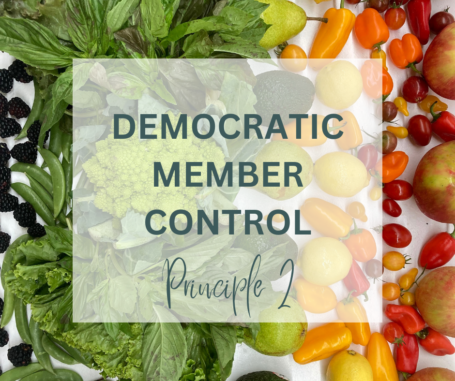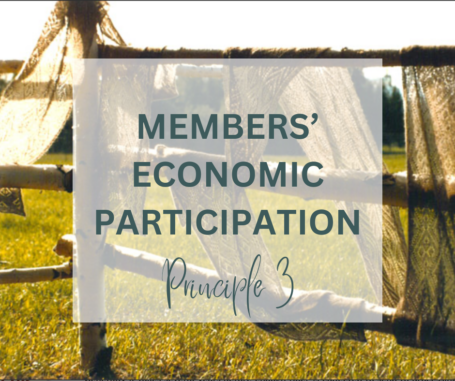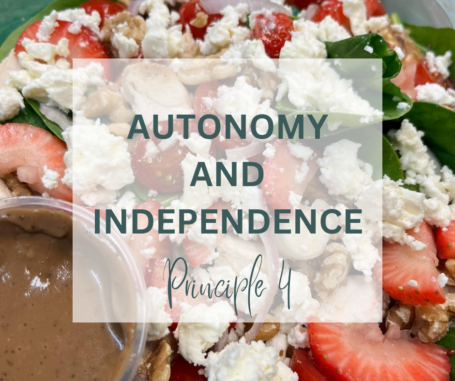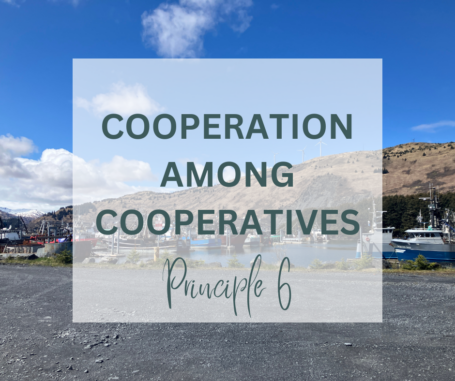Cooperatives, distinct from traditional corporations, are built upon a set of seven fundamental principles that define their structure, operations, and ethos. These principles ensure that co-operatives are member-owned and member-controlled and focused on serving the needs of their communities.
What Makes a Co-op Special?
Co-ops are built on a set of 7 key principles that guide how they work and why they’re different from other businesses. These principles ensure that co-ops are driven by their members, for their members, focusing on fairness, cooperation, and community. From giving everyone a voice to sharing profits, these principles are the foundation of every co-op!
Why Do These Principles Matter?
Because they create stronger, more sustainable businesses that prioritize people over profits. By following these principles, co-ops help their communities thrive, encourage teamwork, and empower their members.
 Kachemak Shellfish Growers for the shrimp curry and Alaska Beauty for the
Kachemak Shellfish Growers for the shrimp curry and Alaska Beauty for thepeonies.
1. Open and Voluntary Membership.
Co-ops are open to anyone who can use their services and agrees to the rules. It doesn’t
matter who you are. If you want to join, you can, as long as you pay the membership fee!
 Fresh produce from Kodiak Harvest Food Coop
Fresh produce from Kodiak Harvest Food Coop2. Democratic Member Control – You Get a Vote!
In a co-op, members get to make decisions together. Every member has one vote (one member, one vote). Members elect people to represent them and help run the co-op. It’s all about working together!
 Oomingmak Muskox Producers’ Coop
Oomingmak Muskox Producers’ Coop3. Participation
Co-op members invest money to help the co-op operate and grow. When the co-op does
well, and there’s extra money, it’s reinvested to improve the co-op, support members, or
save for future needs. If the co-op makes a profit, members receive a dividend (patronage
refund) based on how much they’ve used the co-op!
 Fairbanks Co-op Market Grocery & Deli
Fairbanks Co-op Market Grocery & Deli4. Autonomy and Independence – We Run Ourselves
Co-ops are run by their members. If they work with other organizations or get money from
outside, they still keep control. The co-op always stays independent and true to its
members!
 Basil sold at Sitka Food Coop
Basil sold at Sitka Food Coop5. Education, Training, and Information – Learn and Grow
Co-ops teach their members and workers how to make the co-op better. They also let the
public know how co-ops work and why they’re important. The more people know, the
stronger the co-op!
 Wind turbines owned by Kodiak Electric
Wind turbines owned by Kodiak Electric6. Cooperation Among Cooperatives – Co-ops Helping Co-ops
Co-ops work together with other co-ops to make their services better and to help the
community. Whether local or international, co-ops unite to make a bigger impact!
 Peonies from Alaska Beauty
Peonies from Alaska Beauty7. Concern for Community – Caring for the Community
Co-ops care about the communities they serve. They focus on helping the community
grow in a sustainable way, with support from all the members. The goal is to make the
world a better place!
The seven principles of co-operatives provide a framework for creating profitable, ethical, sustainable, and community-oriented businesses. By adhering to these principles, co-operatives foster a sense of ownership, empowerment, and collective responsibility among their members. This, in turn, leads to stronger, more resilient businesses that contribute positively to their communities.
Learn more about co-ops and if starting or joining one is right for you with our friends at the Alaska Cooperative Development Center (ACDC)!


